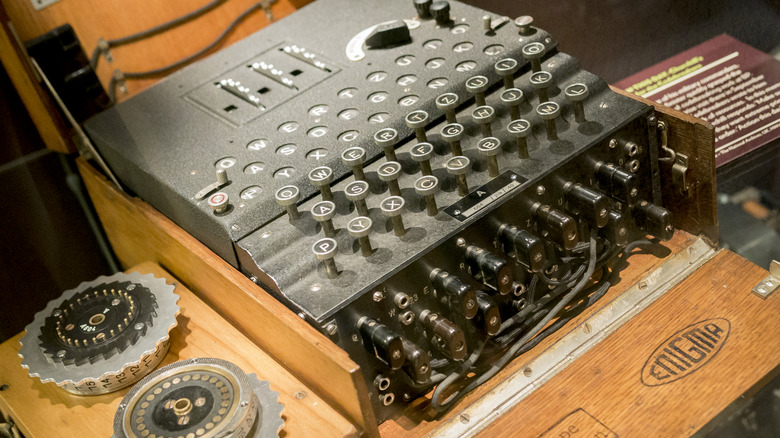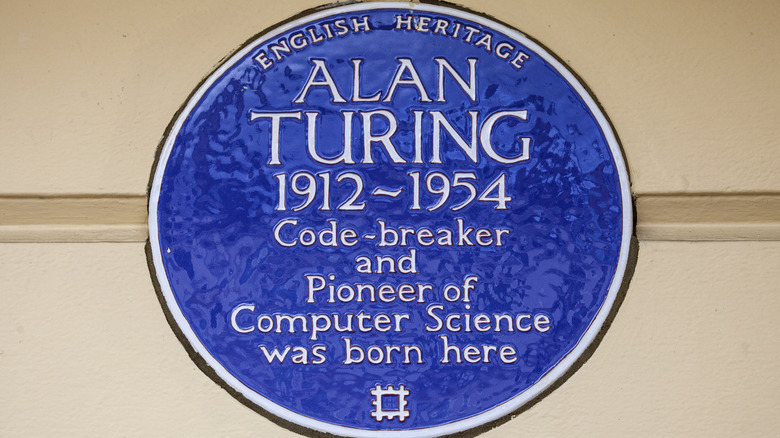The True Story That Inspired The Imitation Game
The backdrop to 2014's "The Imitation Game" was one of chaos for the British Isles. While a German invasion was virtually impossible given Britain's geography and naval presence in the English Channel, this was a marginal consolation to the populace. The country was dependent upon the importation of food and fuel from the Commonwealth nations, the United States, and any other friendly countries. With the threat of German U-boats, the flow of maritime trade was practically halted, forcing the British government to resort to a surprisingly healthy mandated rationing system (per MedicalNewsToday).
Meanwhile, in September 1940, German bombers and fighters were ordered to switch their primary targets from British airbases to major population centers (via Britannica). Throughout this early stage of the war, the Germans made use of the Enigma Machine (pictured above) to coordinate their attacks, a then-revolutionary encoding device that nobody had been able to decipher. It took the enlistment of several experts in cryptography, headed by mathematician Alan Turing, for the British to have a chance at stopping future attacks.
Turing's service did not spare him from persecution
As shown in the film, this endeavor to break the cipher was by no means straightforward, especially as Turing was faced with the additional pressure of being a gay man in a Britain that criminalized homosexuality. However, there are some inaccuracies in how it depicts the team during this time. Elements such as Turing's naming of his decoding machine after his real former lover, the blackmail attempt against him by a Soviet spy, and opposition to female member Joan Clarke's participation by her parents are among the subplots that were purely added for thematic purposes (via TIME).
In fact, before Turing was criminally persecuted for his sexuality, he was initially suspected of being a Soviet infiltrator. That being said, the rest of the film is a relatively faithful portrayal of the figures involved, though critics have noted that the fictional liberties give these depictions incorrect framing (via Slate). The film does include many accurate details, such as showing how laxness in German procedures allowed Turing to eventually crack the device, hinting at how his work would influence future computers, Clarke's failed relationship proposal, and Turing's tragic post-war treatment by the British government.

